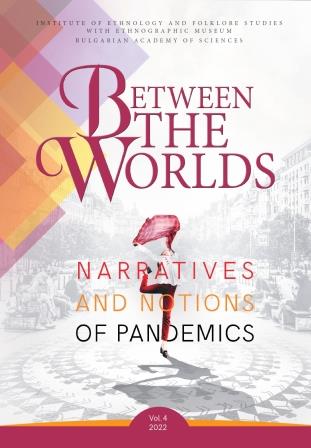Conspiracy Ideas and Notions of COVID-19 Pandemic: The Local Reception of Global Narratives
Conspiracy Ideas and Notions of COVID-19 Pandemic: The Local Reception of Global Narratives
Author(s): Angelina IlievaSubject(s): Politics / Political Sciences, History, Anthropology, Social Sciences, Customs / Folklore, Geography, Regional studies, Environmental Geography, Civil Society, Sociology, Ethnohistory, Local History / Microhistory, Social history, Cultural Anthropology / Ethnology, Culture and social structure , Behaviorism, Social differentiation, Crowd Psychology: Mass phenomena and political interactions, Family and social welfare, Social Norms / Social Control, Globalization
Published by: Институт за етнология и фолклористика с Етнографски музей при БАН
Keywords: COVID-19 pandemic; conspiracy ideas and notions; Facebook
Summary/Abstract: Conspiracy thinking has always been part of our lives, but nowadays, it is almost the default way of understanding the world. When the disease associated with the Severe Acute Respiratory Syndrome Coronavirus 2 (SARS CoV-2) emerged, causes and culprits were sought and found wherever the public imagination perceived a concentration of power and resources. Conspiracy theories about the virus’s origin as a bioweapon, the 5G technology connection, the ongoing plans of a New World Order, or Bill Gates’s scheme to microchip everyone with the COVID-19 vaccines became extremely popular around the globe. The paper discusses the conspiracy ideas and notions of the COVID-19 pandemic on Bulgarian social media, where they circulate in interactive conversational contexts via verbal texts, shared links, or images. It focuses on the local reception and interpretation of globally spread conspiracy narratives and their use to articulate underlying political, social, or public healthcare problems. The Facebook discussions examined here – respectively expressing COVID-19 scepticism (from April 2020) and COVID-19 vaccines/vaccination criticism (from April 2021) – are interpreted as discourses of distrust and perceived corruption in at least three major public spheres: the professional media, the political establishment, and the healthcare system.
Journal: Between the Worlds
- Issue Year: 4/2022
- Issue No: 4
- Page Range: 280-294
- Page Count: 14
- Language: English

